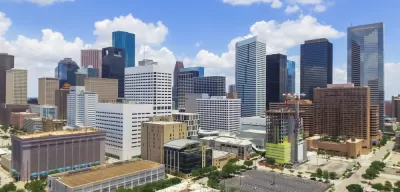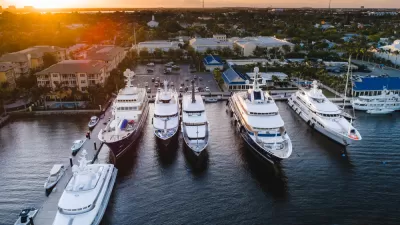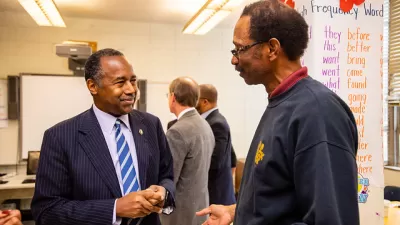Opportunity zones are so far only benefitting the moneyed interests of the real estate industry.

From the beginning, critics have warned that the Opportunity Zones initiative, enabled by the 2017 GOP tax reform bill, would deliver most of its benefits to already-wealthy developers and investors, rather than the residents, workers, and businesses located in low-income urban areas.
So far, those warnings seem to be coming true. According to an article by Jesse Drucker and Eric Lipton, the story of the Opportunity Zone program is a story of a "wave of developments financed by and built for the wealthiest Americans." Stating that claim another way, Drucker and Lipton write that the program is providing a "once-in-a-generation bonanza for elite investors."
Instead of investments that provide new housing jobs, and businesses in low-income, urban neighborhoods, "billions of untaxed investment profits are beginning to pour into high-end apartment buildings and hotels, storage facilities that employ only a handful of workers, and student housing in bustling college towns, among other projects," according to the article.
The investments by wealthy investors, in already-relatively-wealthy neighborhoods, were made possible by the boundaries of the 8,000 zones approved by the Treasury Department in 2018. The maps did manage to capture the low-income struggling neighborhoods promised by supporters of the program, but there was a not-so-hidden opportunity for investments outside of the program's original intent:
Nearly a third of the 31 million people who live in the zones are considered poor — almost double the national poverty rate. Yet there are plenty of affluent areas inside those poor census tracts. And, as investors would soon realize, some of the zones were not low income at all.
The article is feature-length, with in-depth behind-the-scenes reporting in the halls of the wealthy elite as the investments roll in. A detailed history of the formation of the program, its earliest supporters, and its evolution so far are also included.
FULL STORY: How a Trump Tax Break to Help Poor Communities Became a Windfall for the Rich

Maui's Vacation Rental Debate Turns Ugly
Verbal attacks, misinformation campaigns and fistfights plague a high-stakes debate to convert thousands of vacation rentals into long-term housing.

Planetizen Federal Action Tracker
A weekly monitor of how Trump’s orders and actions are impacting planners and planning in America.

San Francisco Suspends Traffic Calming Amidst Record Deaths
Citing “a challenging fiscal landscape,” the city will cease the program on the heels of 42 traffic deaths, including 24 pedestrians.

Defunct Pittsburgh Power Plant to Become Residential Tower
A decommissioned steam heat plant will be redeveloped into almost 100 affordable housing units.

Trump Prompts Restructuring of Transportation Research Board in “Unprecedented Overreach”
The TRB has eliminated more than half of its committees including those focused on climate, equity, and cities.

Amtrak Rolls Out New Orleans to Alabama “Mardi Gras” Train
The new service will operate morning and evening departures between Mobile and New Orleans.
Urban Design for Planners 1: Software Tools
This six-course series explores essential urban design concepts using open source software and equips planners with the tools they need to participate fully in the urban design process.
Planning for Universal Design
Learn the tools for implementing Universal Design in planning regulations.
Heyer Gruel & Associates PA
JM Goldson LLC
Custer County Colorado
City of Camden Redevelopment Agency
City of Astoria
Transportation Research & Education Center (TREC) at Portland State University
Jefferson Parish Government
Camden Redevelopment Agency
City of Claremont





























